All Stories
-
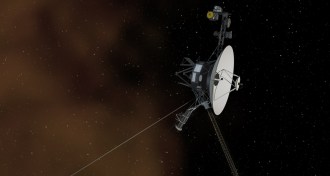 Astronomy
AstronomyAt last, Voyager 1 slips into interstellar space
Solar blast data provides definitive evidence that Voyager 1 has cruised beyond the heliosphere and into interstellar space.
By Andrew Grant -
 Health & Medicine
Health & MedicineAlzheimer’s disease protein structure may vary among patients
Two people with different symptoms had amyloid-beta fibers with different shapes.
-
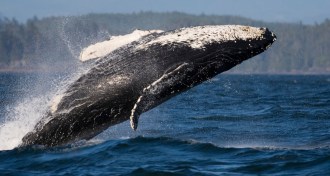 Animals
AnimalsHumpbacks make a comeback in British Columbia
Whale numbers double at a feeding site in Canada.
-
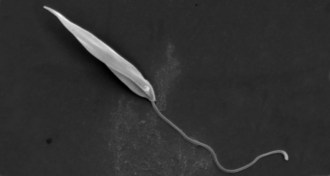 Health & Medicine
Health & MedicineVaccine stops deadly sand-fly-spread scourge in animal test
A DNA vaccine triggers protection against the sand-fly-borne scourge Leishmania.
By Nathan Seppa -
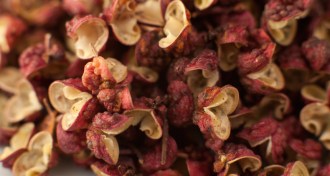 Health & Medicine
Health & MedicineSzechuan pepper taps at nerve fibers
The spice makes lips tingle at 50 beats per second, researchers find.
-
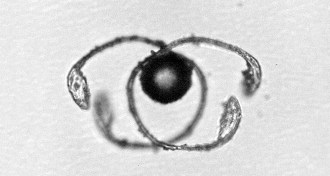 Microbes
MicrobesHorsetail spores don’t need legs to jump
Forget legs. A plant uses curly, humidity-controlled ribbons to make epic leaps.
By Susan Milius -
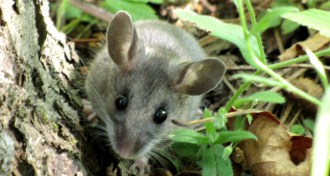 Animals
AnimalsAvoiding feces may be ‘luxury’ wild mice can’t afford
For a mouse in the woods, finding any food at all may trump poopy locations.
By Susan Milius -
 Health & Medicine
Health & MedicineFructose may be key to weight gain
Mice that could not make or metabolize the sugar gained less weight than normal mice.
By Nathan Seppa -
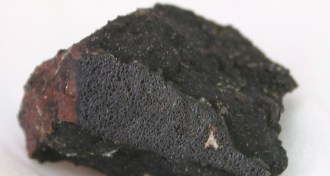 Chemistry
ChemistryMeteorite that fell last year contains surprising molecules
Compounds in space rocks like the one that broke up over California may have helped seed life on Earth.
By Andrew Grant -
 Math
MathEgypt wasn’t built in a day, but it did rise quickly
New timeline of ancient civilization’s earliest days finds little time between earliest villages and dominant centralized state.
By Andrew Grant -
 Humans
HumansBabies perk up to sounds of ancient hazards
Evolution has primed infants to focus on noises linked to longstanding dangers, a new study finds.
By Bruce Bower -
 Tech
TechLetters to the editor
Readers respond to glowing plants, fracking worries and space hookups.
By Science News